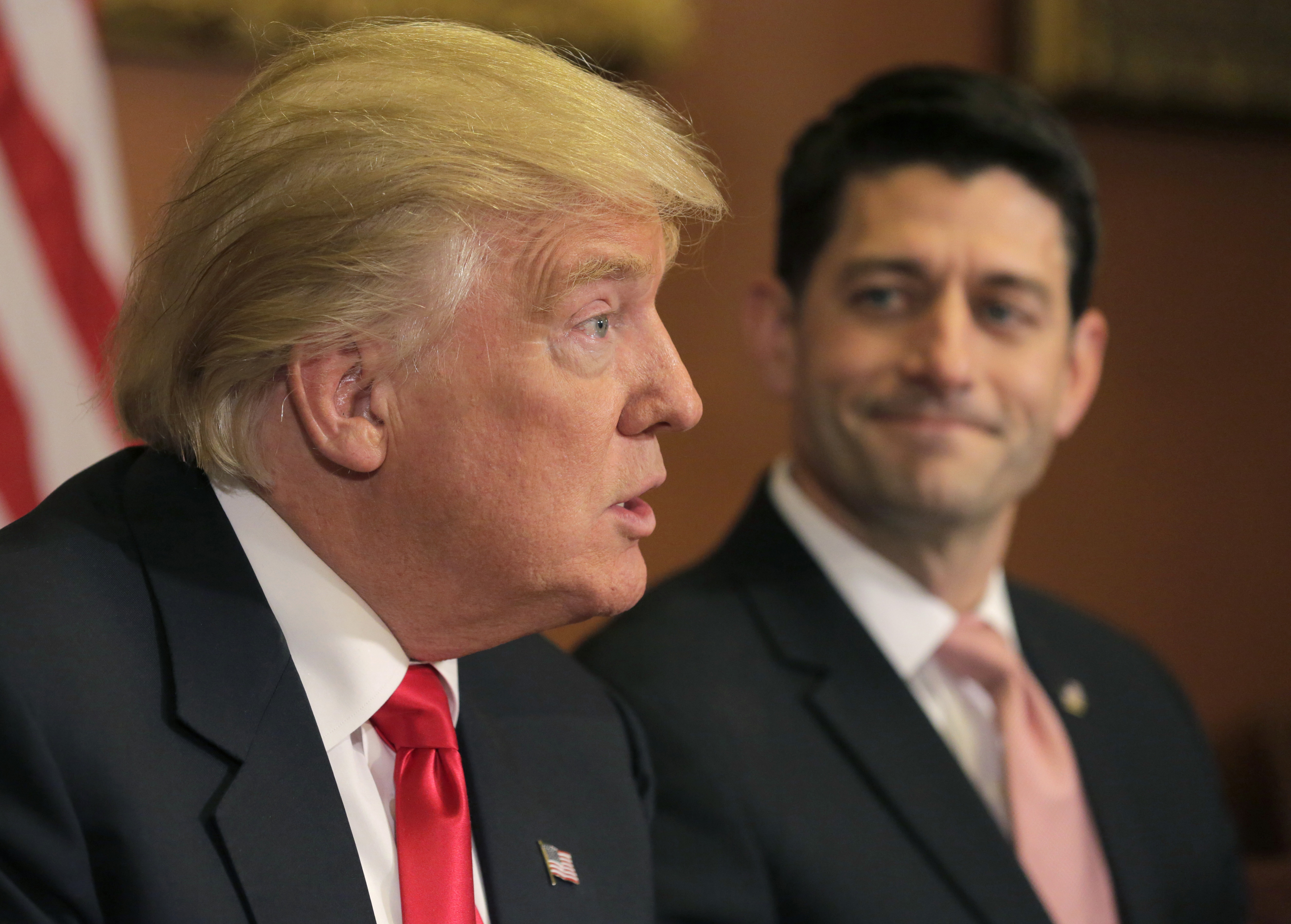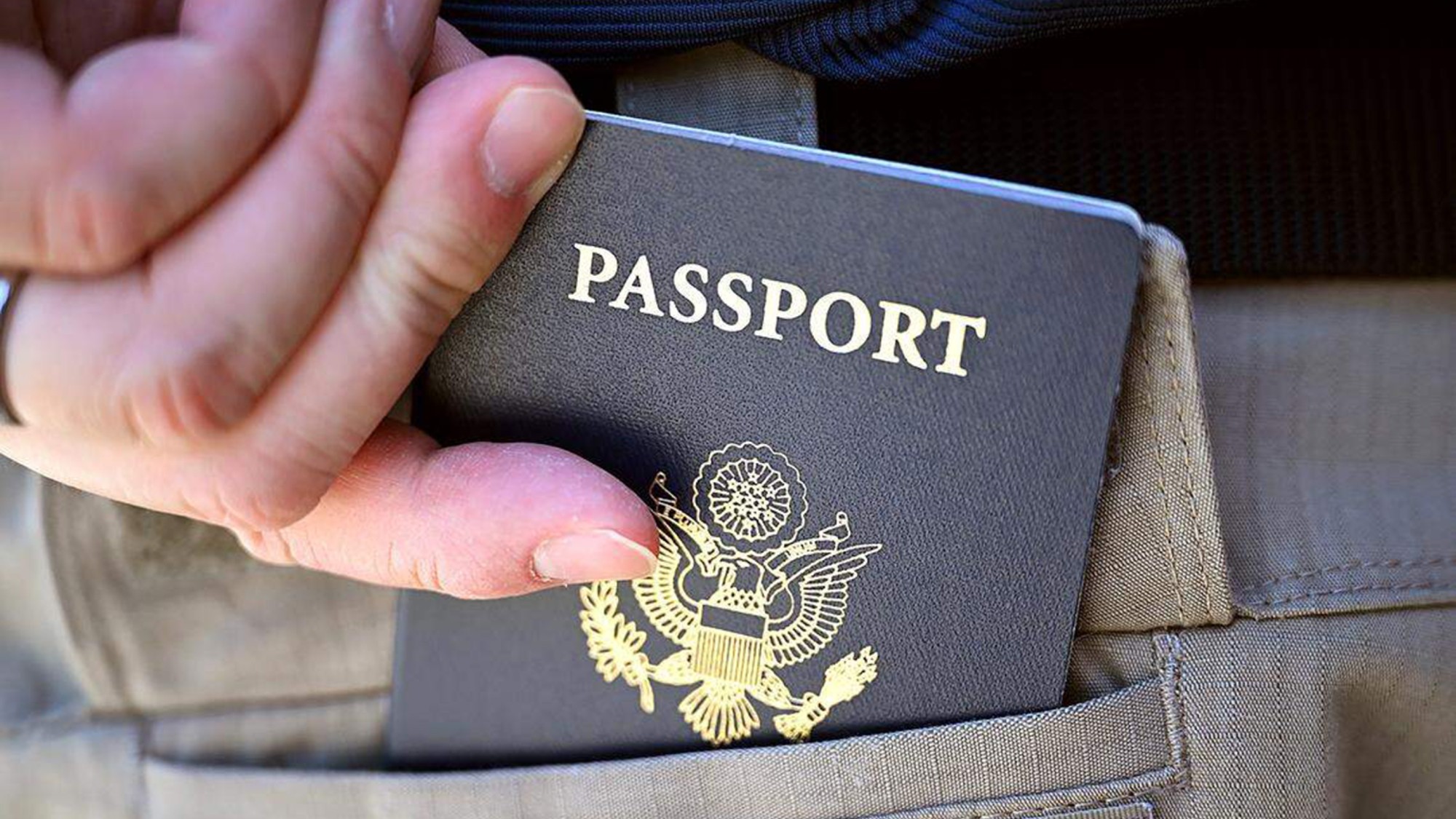Is President Trump playing the long game against Paul Ryan?
Supporting the speaker's terrible health-care bill might sound crazy — until you think of it this way


Has Trump learned nothing from Obama's example?
Back in 2009, President Obama made reforming health care his major domestic priority. He did this even though health-care reform was more important to his party's base than it was to the country as a whole (which was more focused on combating the recession and punishing the malefactors in the financial industry who triggered the financial crisis that caused it), and he stuck with it even as the evidence came in that the effort was far from overwhelmingly popular.
Republicans, knowing that there were bound to be losers in any scheme as complex as the ACA and that people are more motivated by the possibility of loss than by the opportunity for gain, lined up uniformly to oppose the law. When it passed, they were able to ride their opposition into a solid majority in the House and large gains in the Senate — and thereby cripple any future Democratic legislative agenda.
The Week
Escape your echo chamber. Get the facts behind the news, plus analysis from multiple perspectives.

Sign up for The Week's Free Newsletters
From our morning news briefing to a weekly Good News Newsletter, get the best of The Week delivered directly to your inbox.
From our morning news briefing to a weekly Good News Newsletter, get the best of The Week delivered directly to your inbox.
So what is Trump doing? Even though he was elected on a mandate to curtail immigration, renegotiate trade deals, rebuild our infrastructure, and join forces with Russia to fight radical Islam, what's his main legislative priority? Repealing ObamaCare — or as much of it as could possibly be repealed by his party's thin Senate majority.
It's a puzzling choice, particularly given how dreadful the bill has turned out to be. The Republican-headed CBO says 24 million Americans will lose their health insurance, including people in every age bracket, and the White House's own assessment is if anything even more pessimistic (though the administration claims they weren't trying to predict the law's effects, but rather how the CBO would score it). It feels like a free gift to the Democrats, who can rally the many, many losers against the winners — mostly those wealthy enough that for them repeal would be a tax cut.
What is Trump thinking?
It's possible that he's not thinking at all — that he's been gulled by his own party into supporting a bill that baldly traduces his own promises not to touch entitlements or take away anyone's health insurance. But that's probably not the right way to bet. Trump's put his name to a lot of bad products in his time, but he's tried his best to protect himself from personal liability when their shoddiness gets exposed. Brand management is one thing he understands pretty well.
A free daily email with the biggest news stories of the day – and the best features from TheWeek.com
Another possibility is that, like Obama, he really believes that this legislation is worth the risk. Sure, it may cost him his legislative majority in 2018, but isn't that price worth paying to liberate America from ObamaCare's tyranny?
Maybe for Paul Ryan, or for firebrand senators like Ted Cruz or Rand Paul, that would be true. But for Trump?
A more plausible possibility is that Trump thinks the game works differently for him than it did for Obama. Obama's large majority in the Senate in 2008 was built on the back of two successive wave elections, each of which explicitly involved reaching beyond the Democratic core. He had a lot of room to fall. Trump himself certainly altered the shape of the electoral map — but by accelerating polarization, not decreasing it. And his legislative majority in both houses of Congress is thin and dominated by the right.
Because of this, Trump may well think it makes sense to govern as if Democrats just don't matter. If Democrats overwhelmingly oppose anything he does, that may just convince the voters who elected him that he's on the right track. Those people losing insurance? Maybe they're mostly poorer, or non-white, or are happy to avoid paying for insurance that they don't want. Maybe he's gambling that for the bulk of his voters, making sure they aren't paying for insurance for the "undeserving" is precisely the point. Particularly given the shape of the 2018 electoral map, Trump and the GOP may rationally conclude that the more polarized the political environment, the better for them — and the AHCA will certainly be polarizing if it passes. Meanwhile, by 2020 the state of the economy and job growth is what will really matter to voters, or at least an electoral college majority thereof.
But it's also possible that Trump — or his advisers, like Stephen Bannon — are playing a longer game. The AHCA was announced to furious condemnation by many Tea Party-type Republicans for not completely eviscerating the ACA, but instead being "ObamaCare light." Since then, it's shored up its support on the right in the House, but come under fire from less-doctrinaire Republicans in the Senate without having won back Cruz and Paul. What are the odds that a bill with that kind of opposition can even pass? Maybe not high. It's possible that this is fine with the Trump administration, and that in fact they would prefer for the bill to fail.
It would normally be strange for a Republican president to want his own party's majority to suffer a major black eye like that. But this is Ryan's bill, and Trump has no love for Ryan. Moreover, inasmuch as Bannon is in competition with Ryan-ally and Chief of Staff Reince Priebus for influence over the White House's agenda, it's very much in his interest specifically for Ryan to fail. The collapse of the AHCA would be a massive failure — and would likely invite a leadership challenge.
And if it failed quickly, it would be easy for Trump to blame Ryan for getting it wrong, tinker with ObamaCare around the edges (particularly in ways that could be done without even passing legislation), and then when the exchanges don't collapse claim he fixed them. After all, the same CBO report that said the AHCA would cost 24 million people their insurance said that the much-heralded death spiral isn't coming all that soon. Trump could yell at a bunch of insurance executives, watch premiums stabilize, and claim victory.
The most exotic possibility is that Trump not only wants the bill to fail and Ryan to take the blame, but that he wouldn't be too upset to see the Freedom Caucus defanged, opening the door to more creative possibilities. There are certainly people in Trump's inner circle who see the big problem with ObamaCare as being its support of private insurers, and who would prefer a relatively stingy single-payer plan to either ObamaCare or ObamaCare light. Trump doesn't have a legislative majority for a reform like that — but maybe after some strategic losses in 2018 he would?
Personally, I think those kinds of hopes are misplaced, and that Trump ultimately just doesn't care that much about the subject of health care. But it is important to recognize that Trump's position is far less exposed than Ryan's is. If the bill passes, and there's a furious backlash that costs Republicans the House and/or Senate, Trump can do a deal with the Democrats to improve things from a pretty dreadful baseline, which shouldn't be that hard to do. If the bill passes, and Republicans are mostly happy while Democrats are furious, polarization probably helps Trump. If the bill fails, Ryan takes the bulk of the blame and Trump moves on.
The biggest risk to Trump is if his own base either figures out he's not really supporting a bill they claimed to want, or decides he's proposed a bill that is terrible for them and a betrayal of his promises. But for either to happen, the GOP congressional leadership or the Democratic leadership need to do a better job of communicating to Trump's base than he does.
Maybe the question isn't whether Trump has learned anything from Obama's example, but whether the Republican and Democratic leaderships have learned anything from the last election.
Noah Millman is a screenwriter and filmmaker, a political columnist and a critic. From 2012 through 2017 he was a senior editor and featured blogger at The American Conservative. His work has also appeared in The New York Times Book Review, Politico, USA Today, The New Republic, The Weekly Standard, Foreign Policy, Modern Age, First Things, and the Jewish Review of Books, among other publications. Noah lives in Brooklyn with his wife and son.
-
 US citizens are carrying passports amid ICE fears
US citizens are carrying passports amid ICE fearsThe Explainer ‘You do what you have to do to avoid problems,’ one person told The Guardian
-
 All roads to Ukraine-Russia peace run through Donetsk
All roads to Ukraine-Russia peace run through DonetskIN THE SPOTLIGHT Volodymyr Zelenskyy is floating a major concession on one of the thorniest issues in the complex negotiations between Ukraine and Russia
-
 Why is Trump killing off clean energy?
Why is Trump killing off clean energy?Today's Big Question The president halts offshore wind farm construction
-
 Bari Weiss’ ‘60 Minutes’ scandal is about more than one report
Bari Weiss’ ‘60 Minutes’ scandal is about more than one reportIN THE SPOTLIGHT By blocking an approved segment on a controversial prison holding US deportees in El Salvador, the editor-in-chief of CBS News has become the main story
-
 Has Zohran Mamdani shown the Democrats how to win again?
Has Zohran Mamdani shown the Democrats how to win again?Today’s Big Question New York City mayoral election touted as victory for left-wing populists but moderate centrist wins elsewhere present more complex path for Democratic Party
-
 Millions turn out for anti-Trump ‘No Kings’ rallies
Millions turn out for anti-Trump ‘No Kings’ ralliesSpeed Read An estimated 7 million people participated, 2 million more than at the first ‘No Kings’ protest in June
-
 Ghislaine Maxwell: angling for a Trump pardon
Ghislaine Maxwell: angling for a Trump pardonTalking Point Convicted sex trafficker's testimony could shed new light on president's links to Jeffrey Epstein
-
 The last words and final moments of 40 presidents
The last words and final moments of 40 presidentsThe Explainer Some are eloquent quotes worthy of the holders of the highest office in the nation, and others... aren't
-
 The JFK files: the truth at last?
The JFK files: the truth at last?In The Spotlight More than 64,000 previously classified documents relating the 1963 assassination of John F. Kennedy have been released by the Trump administration
-
 'Seriously, not literally': how should the world take Donald Trump?
'Seriously, not literally': how should the world take Donald Trump?Today's big question White House rhetoric and reality look likely to become increasingly blurred
-
 Will Trump's 'madman' strategy pay off?
Will Trump's 'madman' strategy pay off?Today's Big Question Incoming US president likes to seem unpredictable but, this time round, world leaders could be wise to his playbook
